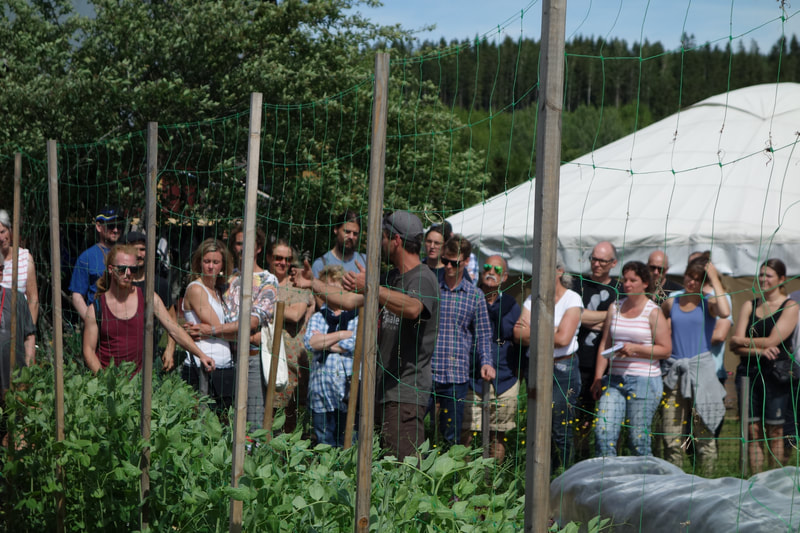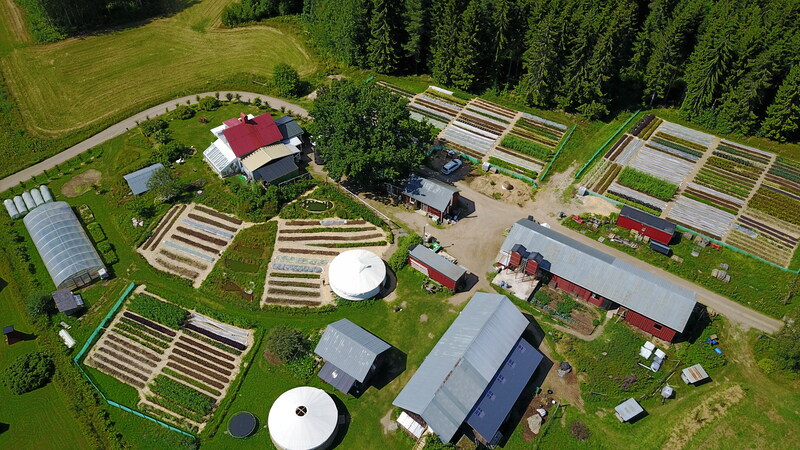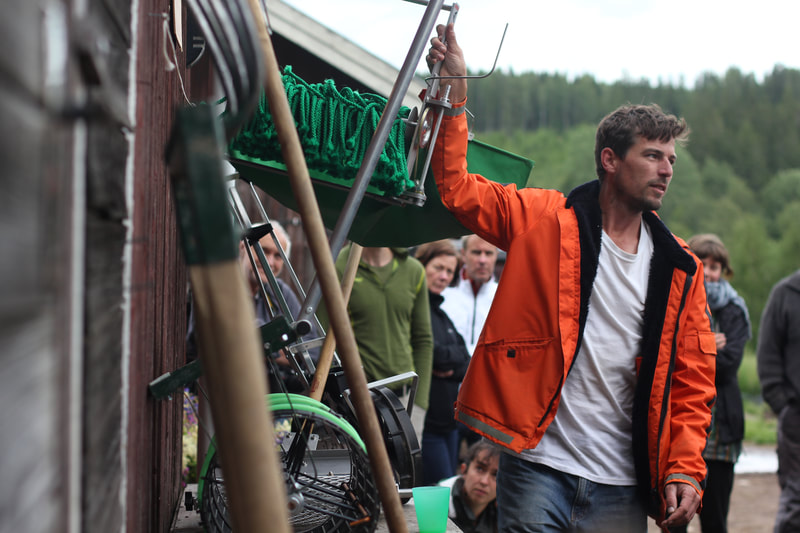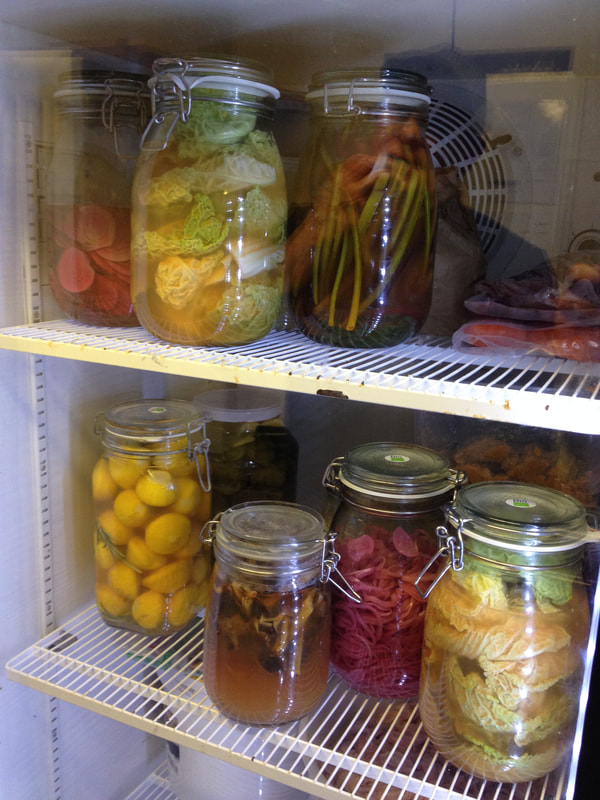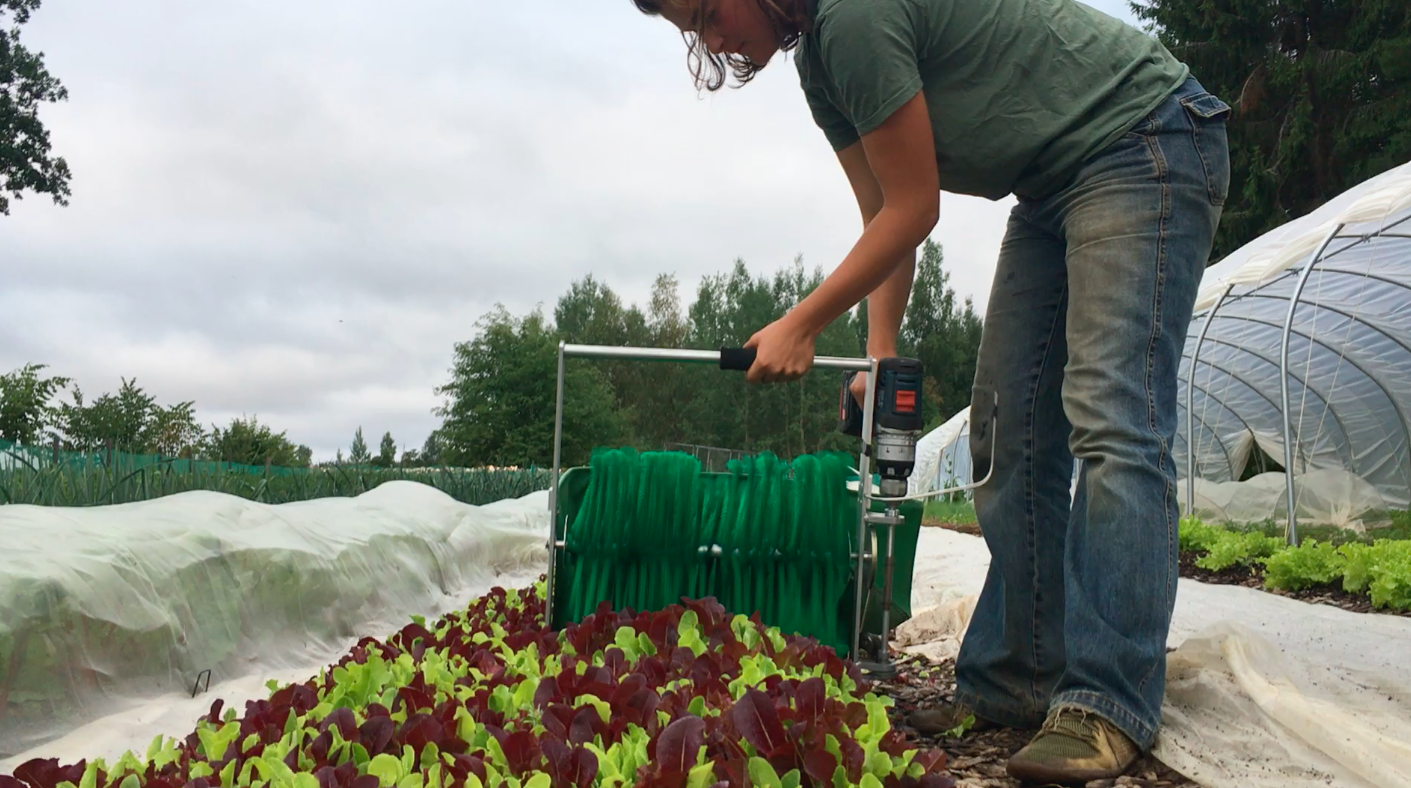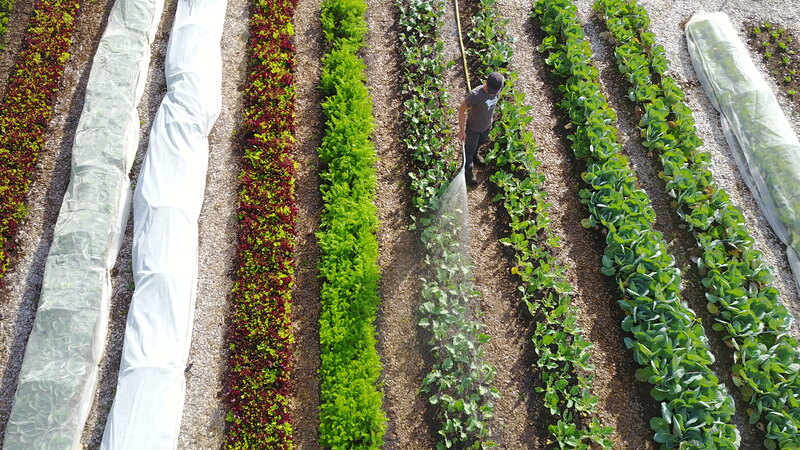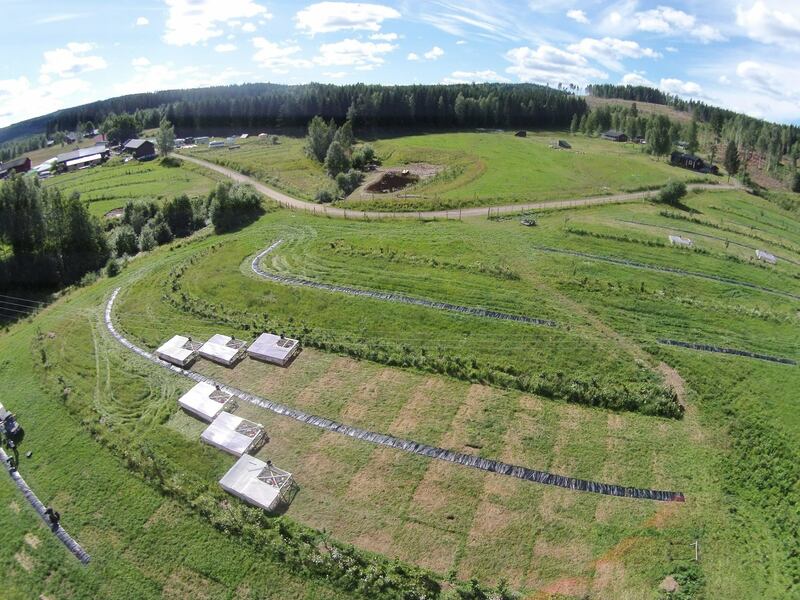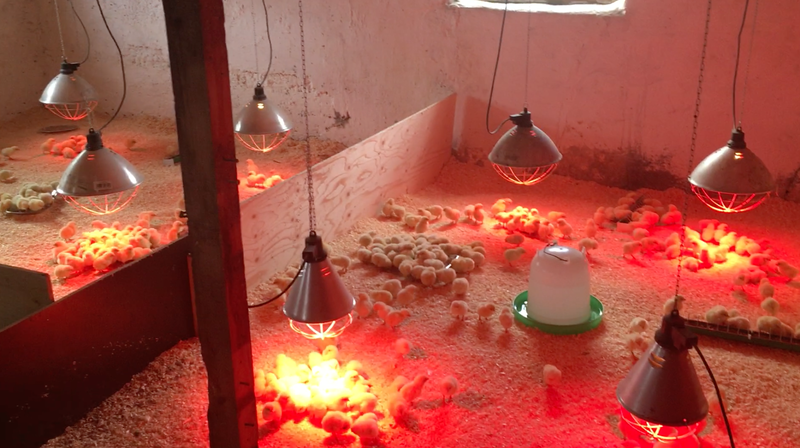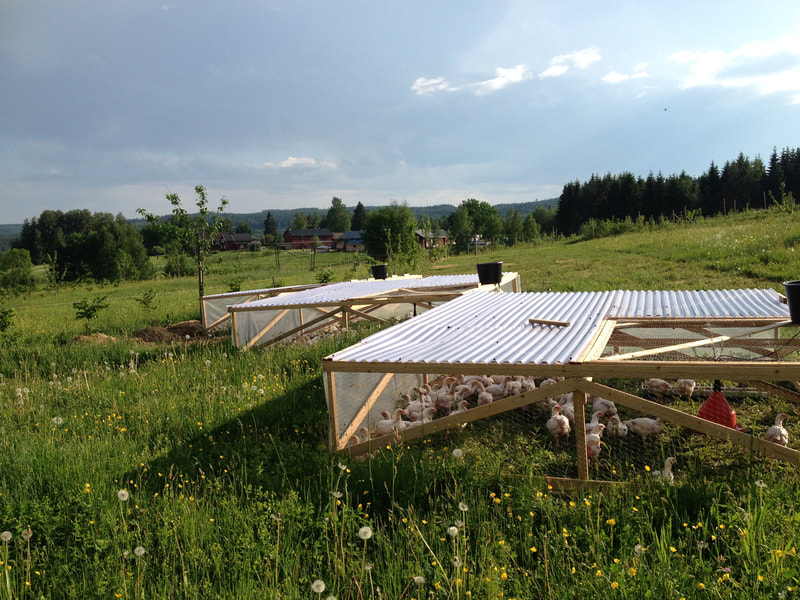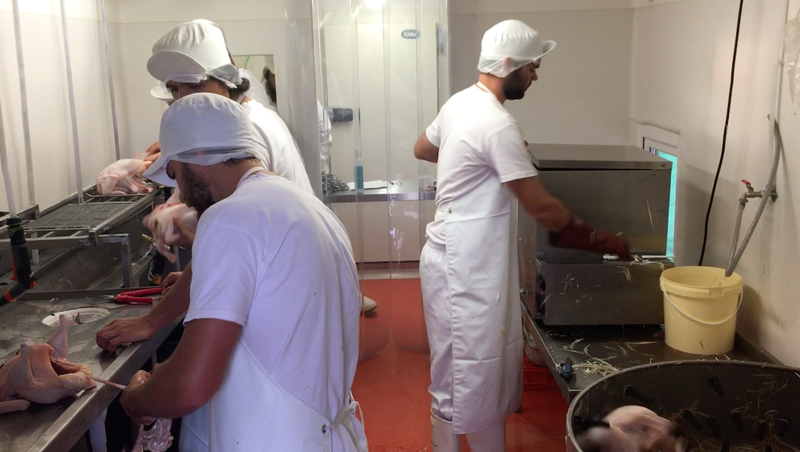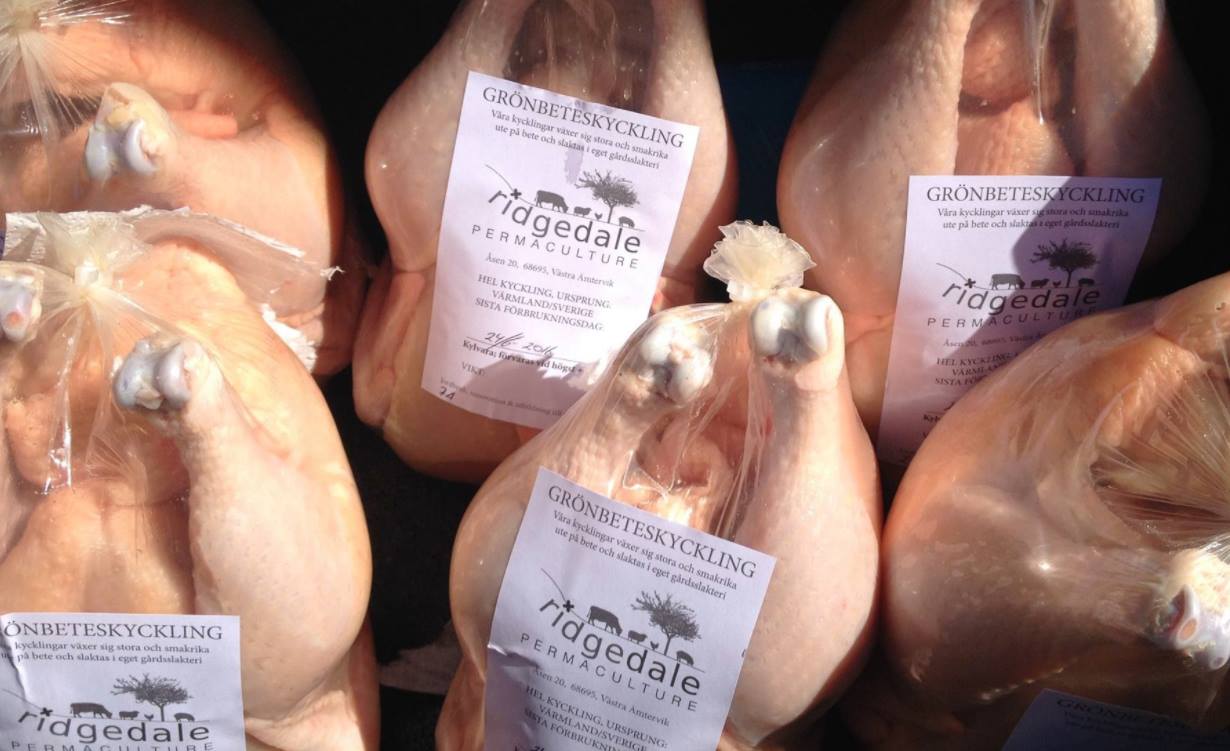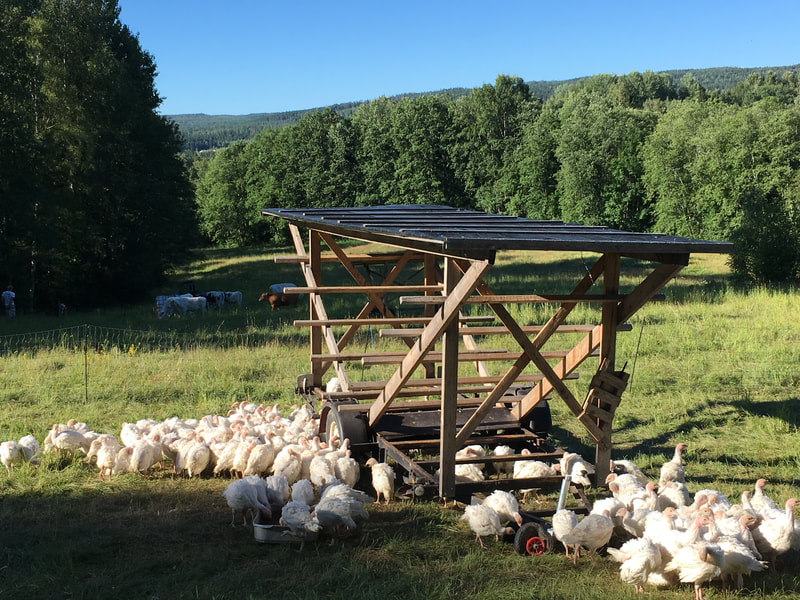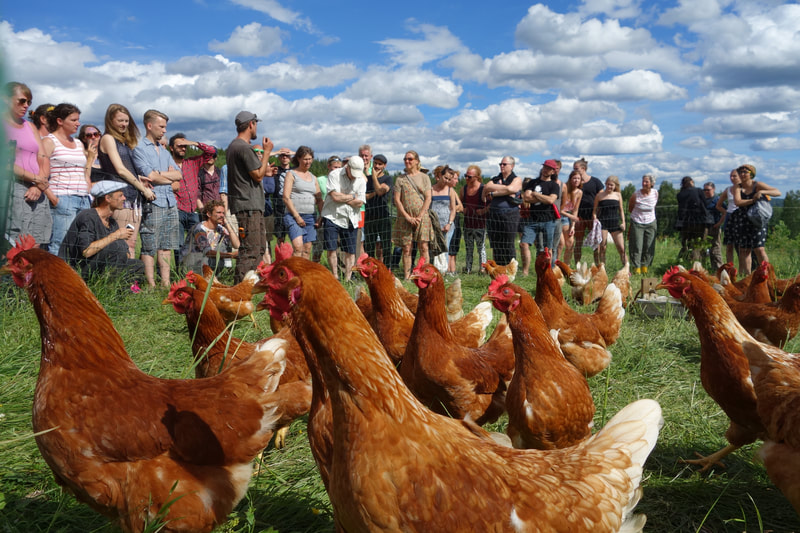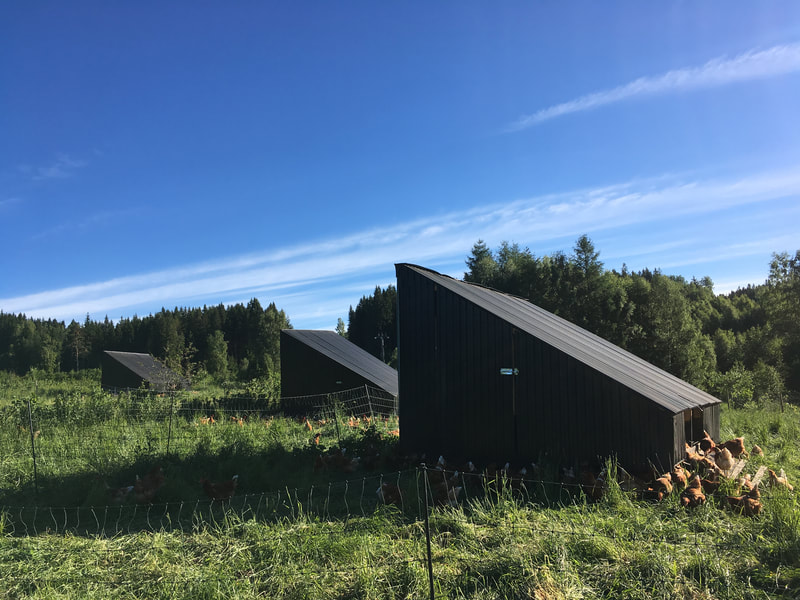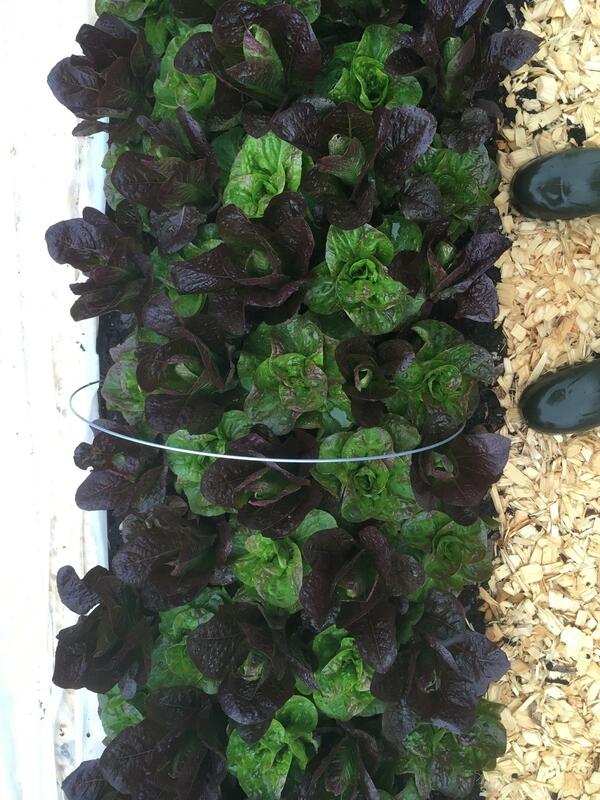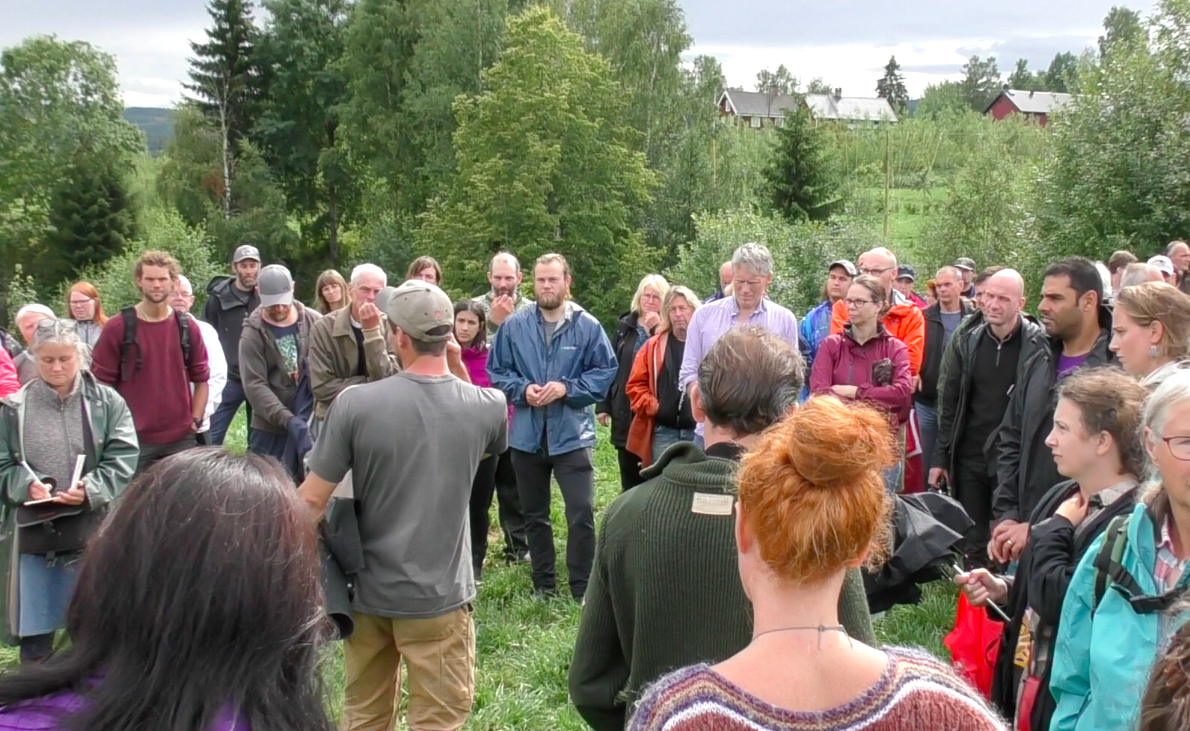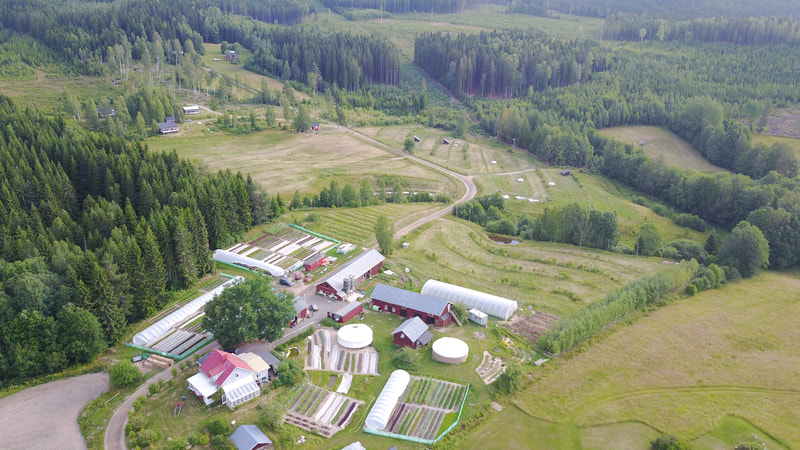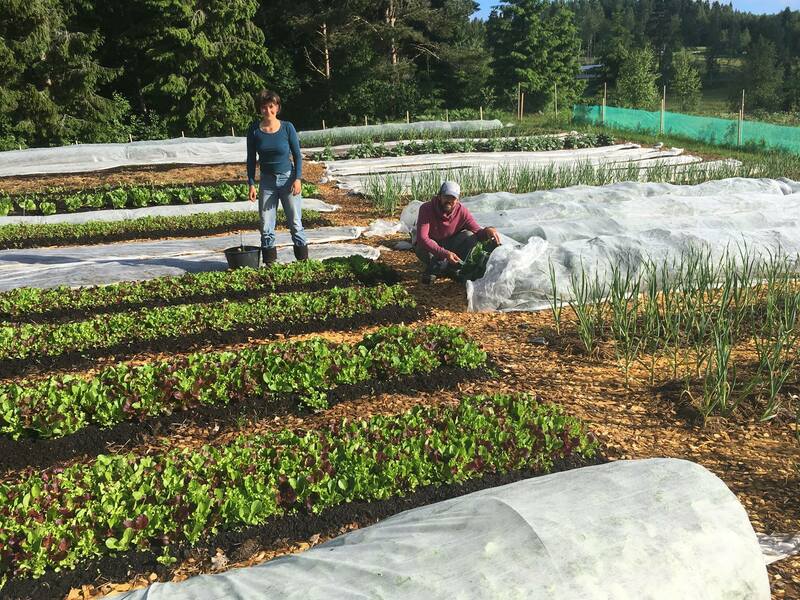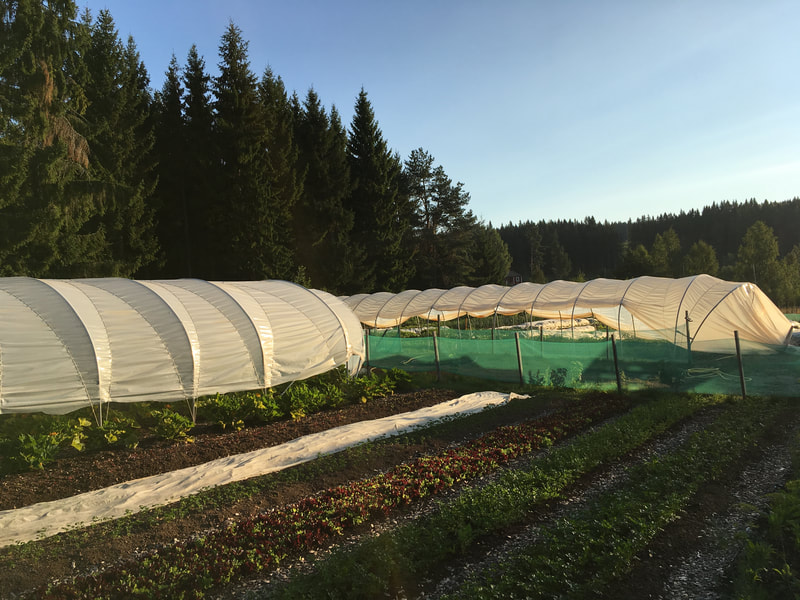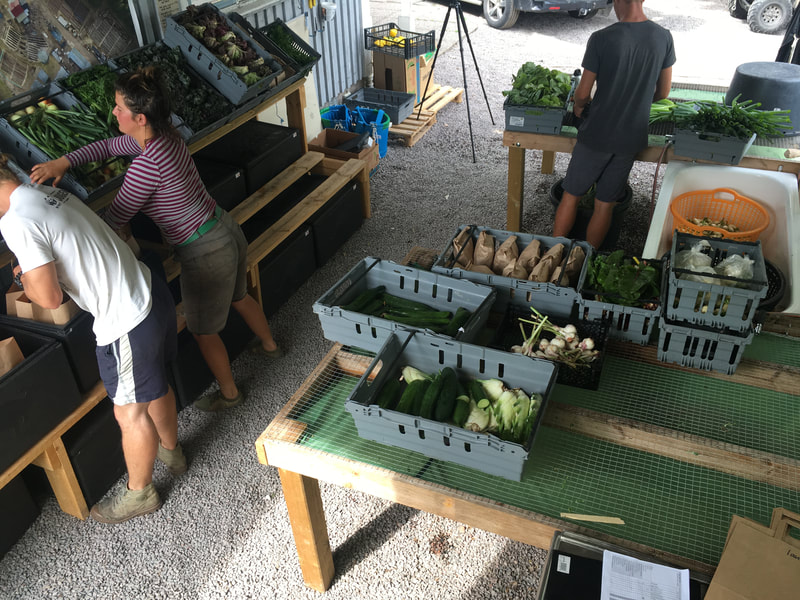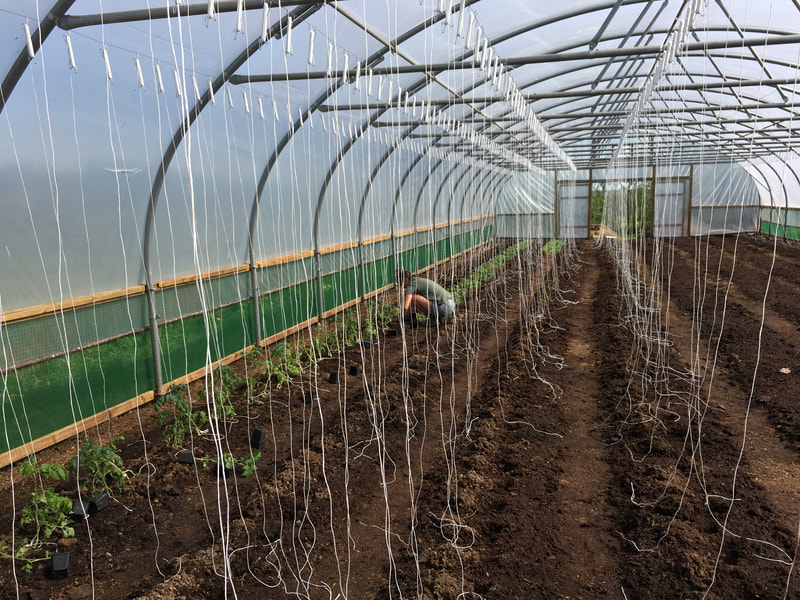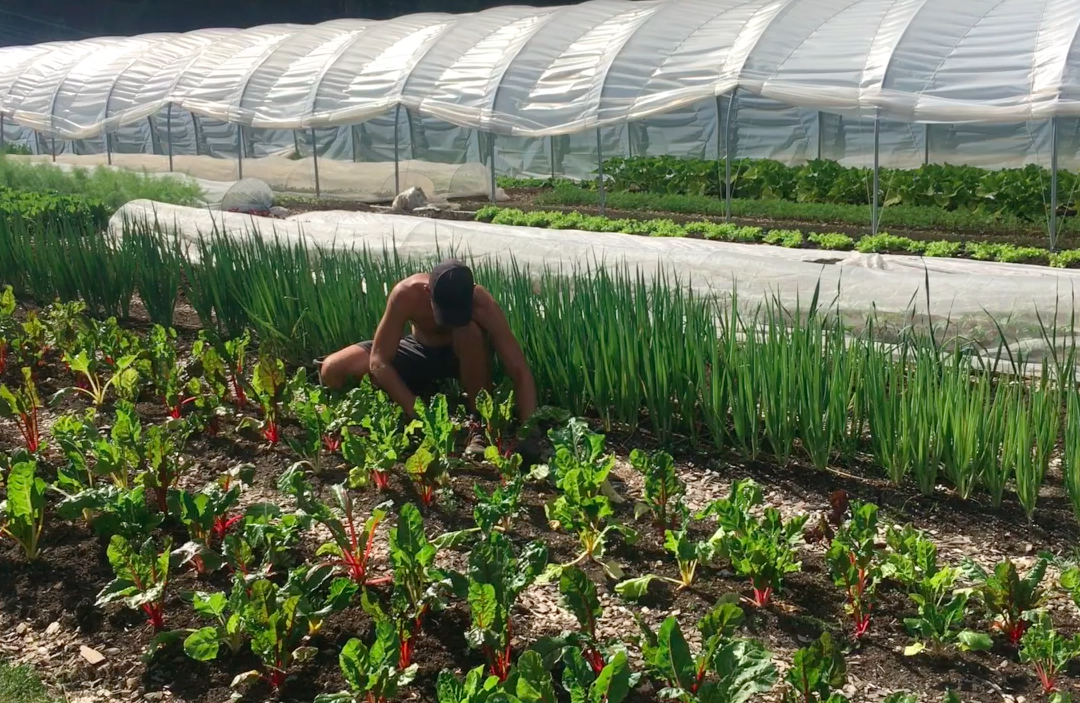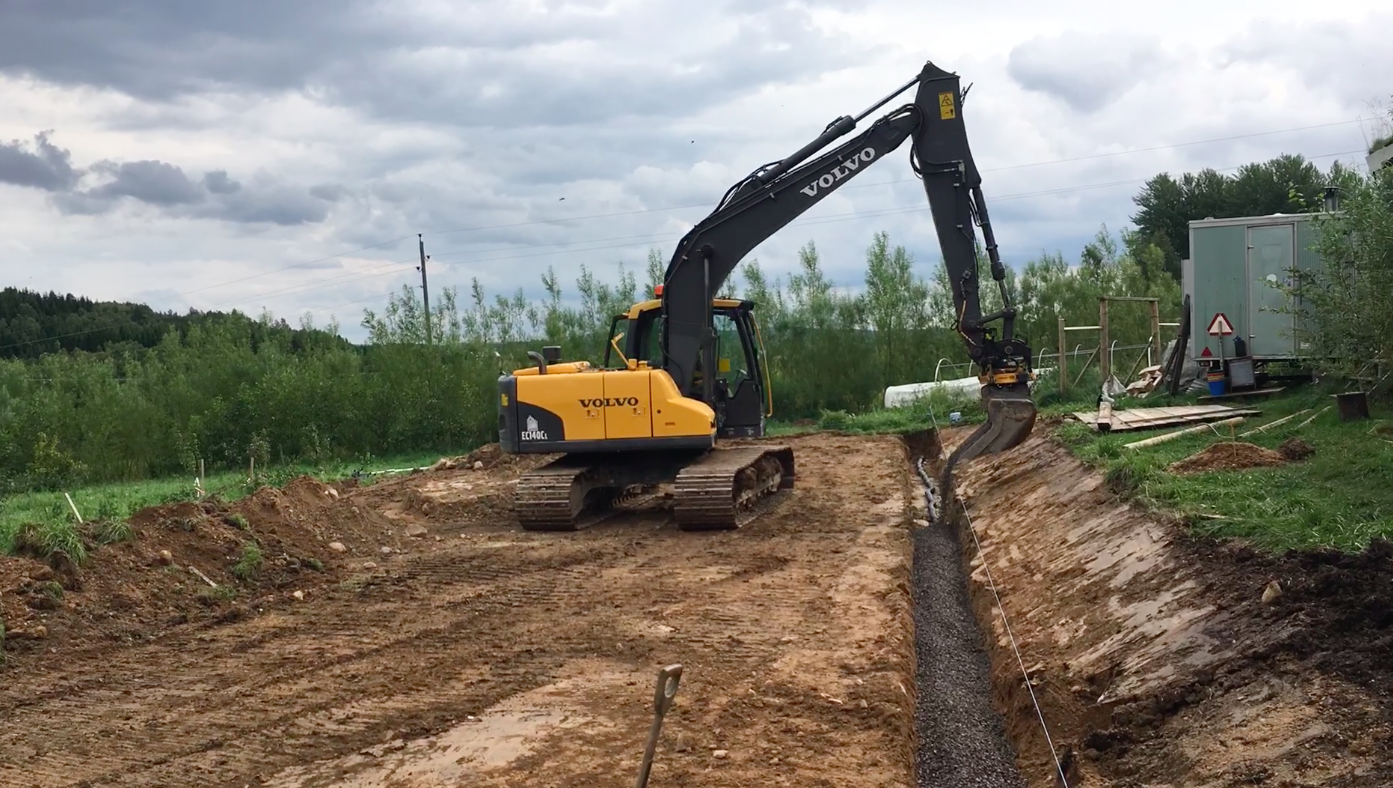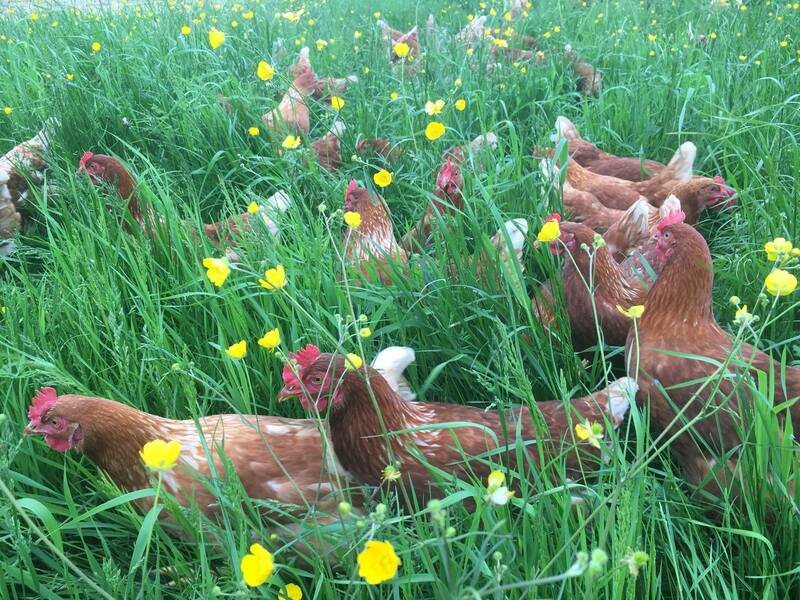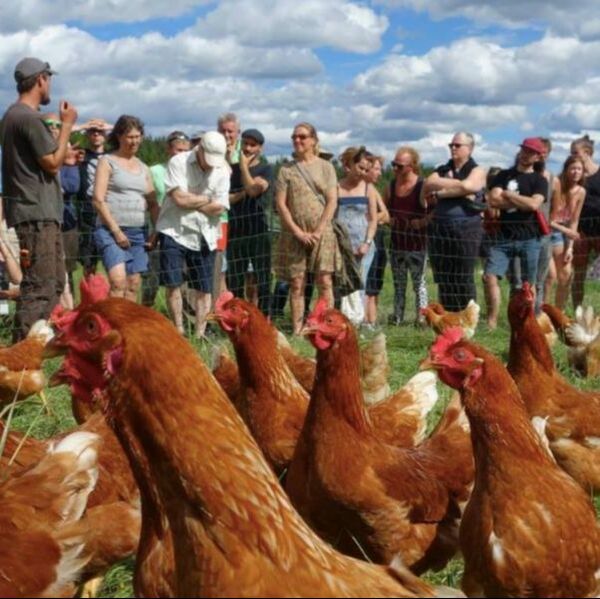This Training is fully booked.
10 Week farm scale permaculture
and regenerative agriculture internship
Mon 20th May -Fri 26th Jul 2019
Realised Ag School won't teach you real farming? That's why we're here...
Due to popular demand we are bringing back our internationally renowned internship. Unique in the field of regenerative agriculture, our program offers a practical and theoretical blend of deep learning that has become a springboard for an exciting new generation of farmers getting started smart. Simply put, there is no other farm we know of where you can be exposed to all the things going on here under the mentorship of a globally regarded leader in the field. Past participants have come from all corners of the globe and many business start-ups and life-long friendships have developed out of this program.
designing, managing and monitoring
Our past Internships have fundamentally served as a 'reality check' for people setting out on their own farming enterprises. We created this training as there aren't really any opportunities like it. Ag schools don't teach these innovative human scale models and there is nowhere people can be exposed to so much in one farm. Alongside class based learning and developing your own plans, the program puts you in a position of responsibility with a different enterprise every 2 weeks, leaving you with hands-on experience in running all aspects of the farm. There are public and closed trainings in;
• Farm Scale Permaculture Design Course
• Introduction to Holistic Management and Integrated Animal Systems
• Pastured poultry
• Poultry Processing
• Keyline Design
• Agroforestry
• Market Gardening
• Business planning and marketing
The Spring internship is when everything is starting up; getting the gardens planted, introducing new layer flocks and receiving day old chicks and turkey poults.
• Farm Scale Permaculture Design Course
• Introduction to Holistic Management and Integrated Animal Systems
• Pastured poultry
• Poultry Processing
• Keyline Design
• Agroforestry
• Market Gardening
• Business planning and marketing
The Spring internship is when everything is starting up; getting the gardens planted, introducing new layer flocks and receiving day old chicks and turkey poults.
Key themes in our approach
Managing Holistically Defining your Context is the very basis of Managing Holistically. It is the very foundation in all our design work, as well as how we manage our farm and lives. Farm Scale Permaculture offers principles and attitudes for designing success, but we always integrate Holistic Management to deal with the complexity of making decisions regarding human relationships, ecology and economy.
Keyline Design The Scale of Permanence offers us an organisational framework for the design of larger landscapes, which we have used for many years in our work. Our whole training program follows the same order of prioritisation with which we approach landscapes, to leave you with a coherent and intelligent approach to whole systems design. Topics include climate and biome considerations, landform and mapping, reading the landscape, understanding water in the landscape, water systems and management, trees and woody crops, access, infrastructure, integrated animal systems, soils and closed loop fertility management.
Tree and woody crops Agroforestry is a vital component in the future of broadacre land regeneration. By understanding the functions of woody systems in different parts of our landscapes we can clarify the agroforestry assemblies suited to our land base. Virtually every farm on the planet could benefit from more woody crops, and so we look at design considerations, planting and management strategies and all the additional yields woody ag offers.
Low Cost Infrastructure development With an ageing farmer/ landowner population, most farmers cannot afford to get out of farming as their capital is locked up in assets. Consequently young people wanting access to land have a hard time getting in the game. Due to the educational aspect of our work, we specialise in low cost, scalable and modular enterprises that could run on rented land and small properties alike. We delve into the mobile and modular infrastructure, fencing and appropriate technologies, etc, that help make small farms work.
Integrated Animal systems Pasture based production is so vital to farms of the future, as there are no shorter chains of production than converting sunlight to flesh via grasses. Yet so little emphasis and understanding has been placed on grass physiology and ecology. Diving deep into this fascinating subject, we will also gain insight into Holistic Planned Grazing and monitoring your grassland using different survey techniques. We will also look at Pastured Egg Mobiles, Broilers and turkeys; fantastic profitable small farm enterprises that play a very important role in rekindling tired pastures and that can easily be scaled up and down accordingly. Operating one of Europe’s lowest cost approved slaughter facilities from Ridgedale, you will also be involved with on- farm slaughter, processing and nutrient cycling.
A No-Dig approach to Market Gardening No-Dig represents the very best soil building approach to growing annual vegetables, and combined with BioIntensive spacings and good crop planning this makes for a fantastic small scale economically profitable enterprise. We use innovative approaches to composting, growing microbiology as well as harvesting, storing and planning. We will get into the back end of the planning and design considerations that reduce the workload of this intensive enterprise. Besides a diverse variety of vegetables you'll also learn all about microgreens and intensive tunnel cultivation of tomato and cucumbers.
Closed-loop fertility Soils are the basis of everything we are looking to create. For us, the basic premise of regenerative agriculture is that it must be soil building. There are many ways to capture carbon back into increasingly productive agricultures, which we cover as a theme in all the topics. We will also explore approaches to closing fertility loops on the farm as far as possible, including topics like making your own composts, bio-fertilisers, compost teas, biochar, growing microbiology, etc.
Regenerative Enterprise Ultimately it is effective decision making, diligent planning and monitoring that make it all work. In Farm Scale Permaculture we aim to observe and understand natural patterns to be able to design more effective and resilient systems. Economic considerations are no different. We can design enterprises that benefit all involved and marketing local food systems presents opportunities and leverage points that give us an upper edge. Selling what you produce is half the work and so we explore CSA’s, buying clubs, farm currencies and other innovative ways to reduce the work and risk whilst building community.
Keyline Design The Scale of Permanence offers us an organisational framework for the design of larger landscapes, which we have used for many years in our work. Our whole training program follows the same order of prioritisation with which we approach landscapes, to leave you with a coherent and intelligent approach to whole systems design. Topics include climate and biome considerations, landform and mapping, reading the landscape, understanding water in the landscape, water systems and management, trees and woody crops, access, infrastructure, integrated animal systems, soils and closed loop fertility management.
Tree and woody crops Agroforestry is a vital component in the future of broadacre land regeneration. By understanding the functions of woody systems in different parts of our landscapes we can clarify the agroforestry assemblies suited to our land base. Virtually every farm on the planet could benefit from more woody crops, and so we look at design considerations, planting and management strategies and all the additional yields woody ag offers.
Low Cost Infrastructure development With an ageing farmer/ landowner population, most farmers cannot afford to get out of farming as their capital is locked up in assets. Consequently young people wanting access to land have a hard time getting in the game. Due to the educational aspect of our work, we specialise in low cost, scalable and modular enterprises that could run on rented land and small properties alike. We delve into the mobile and modular infrastructure, fencing and appropriate technologies, etc, that help make small farms work.
Integrated Animal systems Pasture based production is so vital to farms of the future, as there are no shorter chains of production than converting sunlight to flesh via grasses. Yet so little emphasis and understanding has been placed on grass physiology and ecology. Diving deep into this fascinating subject, we will also gain insight into Holistic Planned Grazing and monitoring your grassland using different survey techniques. We will also look at Pastured Egg Mobiles, Broilers and turkeys; fantastic profitable small farm enterprises that play a very important role in rekindling tired pastures and that can easily be scaled up and down accordingly. Operating one of Europe’s lowest cost approved slaughter facilities from Ridgedale, you will also be involved with on- farm slaughter, processing and nutrient cycling.
A No-Dig approach to Market Gardening No-Dig represents the very best soil building approach to growing annual vegetables, and combined with BioIntensive spacings and good crop planning this makes for a fantastic small scale economically profitable enterprise. We use innovative approaches to composting, growing microbiology as well as harvesting, storing and planning. We will get into the back end of the planning and design considerations that reduce the workload of this intensive enterprise. Besides a diverse variety of vegetables you'll also learn all about microgreens and intensive tunnel cultivation of tomato and cucumbers.
Closed-loop fertility Soils are the basis of everything we are looking to create. For us, the basic premise of regenerative agriculture is that it must be soil building. There are many ways to capture carbon back into increasingly productive agricultures, which we cover as a theme in all the topics. We will also explore approaches to closing fertility loops on the farm as far as possible, including topics like making your own composts, bio-fertilisers, compost teas, biochar, growing microbiology, etc.
Regenerative Enterprise Ultimately it is effective decision making, diligent planning and monitoring that make it all work. In Farm Scale Permaculture we aim to observe and understand natural patterns to be able to design more effective and resilient systems. Economic considerations are no different. We can design enterprises that benefit all involved and marketing local food systems presents opportunities and leverage points that give us an upper edge. Selling what you produce is half the work and so we explore CSA’s, buying clubs, farm currencies and other innovative ways to reduce the work and risk whilst building community.
Many of our students are now running some awesome start-ups...
|
|
|
|
|
|
|
Structure and responsibilities
Every Intern will be trained in the tasks required to run each enterprise at the farm. For 2 weeks you will work in a pair with the primary responsibility for all aspects of running Pastured Layers, Pastured Broilers, Cows and Turkeys, as well as spending 4 weeks heading the Market Gardens. These responsibilities will involve regular daily tasks, giving you insight into what each enterprise requires. Constant observation, monitoring and record keeping whilst constantly interacting Richard will leave you clear on the details that make things work. Pairings will also rotate so people work in different combinations throughout their stay.
By rotating through all the primary enterprises you are left with a real knowing of what you enjoy, what you might do differently, what your personal capacity is and how you can use this to forge your own business plan in your unique time, place and circumstance. A key part of the training is gleaning from our extensive time and motion studies; challenging yourself to understand your potential. This is a strong aspect of the culture we create here at the farm, as ultimately this is the 'testing ground' before you put your own capital and time at risk.
Interns will cook and manage the kitchen on a rotational basis where everyone supports the wellbeing of each other. We supply farmed vegetables, eggs and meat and fully organic whole foods. Courses that are open to the public are catered, and you will not be cooking during those periods. Richard and Yohanna will join for lunch during weekdays, eating separately as a family the rest of the time. We will sometimes cook for everyone and invite the Interns to dinner on our porch.
Throughout the 10 week you are with us there are formal trainings included (open to outside participants too) as well as less formal class and field activity time covering other topics and responding to the groups needs. You will be responsible for conducting your management roles 7 days a week, and will need to be organised and diligent consistently to make the most of this opportunity. Trainings open to outside participants include;
By rotating through all the primary enterprises you are left with a real knowing of what you enjoy, what you might do differently, what your personal capacity is and how you can use this to forge your own business plan in your unique time, place and circumstance. A key part of the training is gleaning from our extensive time and motion studies; challenging yourself to understand your potential. This is a strong aspect of the culture we create here at the farm, as ultimately this is the 'testing ground' before you put your own capital and time at risk.
Interns will cook and manage the kitchen on a rotational basis where everyone supports the wellbeing of each other. We supply farmed vegetables, eggs and meat and fully organic whole foods. Courses that are open to the public are catered, and you will not be cooking during those periods. Richard and Yohanna will join for lunch during weekdays, eating separately as a family the rest of the time. We will sometimes cook for everyone and invite the Interns to dinner on our porch.
Throughout the 10 week you are with us there are formal trainings included (open to outside participants too) as well as less formal class and field activity time covering other topics and responding to the groups needs. You will be responsible for conducting your management roles 7 days a week, and will need to be organised and diligent consistently to make the most of this opportunity. Trainings open to outside participants include;
- 10 day Farm Scale Permaculture Design
- 3 Day Holistic Management Training
- 4 Day Market Garden Training
- 2 Day Pastured Poultry Training (weekend training)
- Near the end of the Internship you will be involved in all aspects of the slaughter of pastured broilers and turkeys.
- As the productions start up, we will be working with harvesting and prepping veg sales regularly each week, as well as preparing all orders of veg/ eggs/ meat for the REKO and restaurant sales. Interns can visit the REKO one of the weeks during their stay, to experience how that operates.
Day and week schedules
Trainings open to public follow this schedule;
General daily schedule Mon-Fri outside of open trainings;
- 7:00-8:00 Morning responsibilities (animal moves/ transplanting/ harvesting)
- 9:00-10:30 Session 1
- 11:00-12:30 Session 2
- 2:00-3:30 Session 3
- 4:00-5:30 Session 4
- Interns will have different tasks associated with their area of responsibility to fit into this schedule during the course days. Meals are catered during this time.
- After dinner we light the sauna every day and split evenings between rest, campfire, swim at lake, film nights or different lectures/ presentations as we feel best.
General daily schedule Mon-Fri outside of open trainings;
- 7:00-8:00 Morning responsibilities (animal moves/ transplanting/ harvesting)
- 9:00-12:30 Class/Field activities with Richard
- 12:30-2:00 Shared Lunch
- After lunch is open space for personal project work/ field tasks/ enterprise tasks. Richard is primary caretaker for Ragnar after lunch and may or may not be present in an unstructured manner. He will be constantly engaged in oversight and checking in with all Interns regularly.
- Weekends are generally down time, but morning and basic responsibilities are still carried out throughout the day. Cooking rotation continues throughout the weekend.
- Organisational meetings usually happen on Sunday evening
Food policy at the farm
- We eat a balanced diet of meat, dairy, eggs, vegetables and whole foods. We supply farm raised and grown produce and 100% organic whole foods that we buy in for the Intern kitchen, as well as for our catered courses.
- We have a one meal policy, and offer nutritious farmhouse food. We regularly use meat stock, dairy, eggs and meat in meals as well as eating sourdough breads we bake. Unfortunately we cannot cater for particular diets. Bear in mind we are a meat producing farm that also slaughters animals here on the farm. If you are not comfortable eating the rounded diet described it is best not to spend 10 weeks here!
Learning objectives
Our objectives are that participants leave confident in diverse aspects of Design, Planning and Enterprise Management. Asides from learning a lot about yourself and working and living in groups, diligent and committed Interns should leave the farm with these learning outcomes;
• Your Holistic Context and know how to test decisions in your life holistically
• Using the Keyline Scale of Permanence to organise your design work
• Applying Keyline cultivation patterning to varied terrains
• Deep understanding of maps, how to create them and how to use them in design
• Relevant software for design
• Producing a Bill of Quantities
• The vital elements and prioritisation in Farm Scale design
• Setting up a Holistic Planned Grazing Chart
• Knowing how to conduct basic field surveys to create tangible data for planning and monitoring pasture
• Confident in the daily farm tasks at Ridgedale and how to manage them effectively
• Understanding basic elements of Animal Husbandry
• Clear about how to plan farm enterprises and work with spreadsheets
• Able to identify biome characteristics and assemble appropriate species
• Knowing various approaches and strategies for implementing Perennial cropping systems
• Understanding how to establish Pastured Egg/Pastured Broiler/Pastured Turkey enterprises; including slaughter, processing and packing
• Understanding various ways to market your produce
• Moving and working with cows
• Producing abundant Market Garden crops with minimal effort
• How to grow and manage a diverse variety of crops
• How to set up and run a microgreen enterprise
• High tunnel intensive tomato and cucumber production
• Harvest/ processing/ storage techniques
• Planning a Market Garden crop plan
• Creating a Market Garden year planner
• Knowing how to use a wide range of innovative tools
• Learning various hand skills
• How to build soil in a variety of ways suitable for different scales and climates, including various preparations
• Soil Microscopy
• With a solid design base for your own property (if you came with relevant data and put spare time into creating this plan and asking for reflection and feedback)
• With a 500gb (please bring an external HD with you!) hard drive packed with a lifetime of resources for all aspects of regenerative design through all climate zones
• With incredible memories and new lifelong friends as well as a developing professional network
• Inspired, engaged and empowered to take your plans to the next level
• Your Holistic Context and know how to test decisions in your life holistically
• Using the Keyline Scale of Permanence to organise your design work
• Applying Keyline cultivation patterning to varied terrains
• Deep understanding of maps, how to create them and how to use them in design
• Relevant software for design
• Producing a Bill of Quantities
• The vital elements and prioritisation in Farm Scale design
• Setting up a Holistic Planned Grazing Chart
• Knowing how to conduct basic field surveys to create tangible data for planning and monitoring pasture
• Confident in the daily farm tasks at Ridgedale and how to manage them effectively
• Understanding basic elements of Animal Husbandry
• Clear about how to plan farm enterprises and work with spreadsheets
• Able to identify biome characteristics and assemble appropriate species
• Knowing various approaches and strategies for implementing Perennial cropping systems
• Understanding how to establish Pastured Egg/Pastured Broiler/Pastured Turkey enterprises; including slaughter, processing and packing
• Understanding various ways to market your produce
• Moving and working with cows
• Producing abundant Market Garden crops with minimal effort
• How to grow and manage a diverse variety of crops
• How to set up and run a microgreen enterprise
• High tunnel intensive tomato and cucumber production
• Harvest/ processing/ storage techniques
• Planning a Market Garden crop plan
• Creating a Market Garden year planner
• Knowing how to use a wide range of innovative tools
• Learning various hand skills
• How to build soil in a variety of ways suitable for different scales and climates, including various preparations
• Soil Microscopy
• With a solid design base for your own property (if you came with relevant data and put spare time into creating this plan and asking for reflection and feedback)
• With a 500gb (please bring an external HD with you!) hard drive packed with a lifetime of resources for all aspects of regenerative design through all climate zones
• With incredible memories and new lifelong friends as well as a developing professional network
• Inspired, engaged and empowered to take your plans to the next level
We also supply key tools you'll learn to use
We sell a lot of the awesome tools you might need starting out. Our range is here, and you can save on the prices shown if you don't require shipping and take tools with you.
Sleeping and other housekeeping
- We have a few individual rooms (in close quarters) and shared loft accommodation, which will be allocated when you arrive. You are also welcome to bring a tent if you wish to have a little more privacy. We supply a simple duvet, but plan on bringing a sleeping bag to ensure your comfort.
- We have sauna and bucket showers available daily
- Interns will be cooking for each other except on public courses, a small fridge is available if you wish to use it
- We have high speed fiber optic internet available
- We have simple compost toilets and an outdoor sink with hot and cold water
Arrival and Departure
|
Plan to arrive at the farm Monday 20th May 2019
Plan to depart on Friday 26th Jul 2019 We can pick up/ drop off people at Västra Ämtervik train station. Please note, we cannot accommodate you or help with transport outside these times. Driving We are located quite centrally to all the major regional transport hubs. We are 3 hrs from Oslo, 4 hrs from Stockholm and 3.5 hrs from Gothenburg. For Google maps use this address; Åsen 20, Västra Ämtervik, 68695, Sweden Train and Bus We recommend using the website http://www.sj.se/ which gives you all the options and comparative prices when travelling in Sweden, in both Swedish and English. We can only pick you up in Västra Ämtervik which is 6km from the farm. PLEASE NOTE; you need to include the Swedish letters for the website to recognise the station. Flying Travel is simple from the three major transport hubs above. Use the train/ bus link to determine what feels best for you. |
Course fees
THIS TRAINING IS FULLY BOOKED. WE HAVE AN AUTUMN TRAINING TOO.
CLARIFYING OBJECTIVES, EXPECTATIONS AND CONTEXT
The farm comes first. Ridgedale primarily exists as a local super high quality food-producing farm. During our short and intensive production season we sacrifice a lot to create unparalleled learning opportunities. For the last 5 years we have given up our personal time and space for 6 months each season to really empower people that come to learn here. We are putting more boundaries in place with the return of the Internship program, as a way of achieving more balance for our family. Because we give it all we've got and take high risks, we expect some things from you too. We have clarified some of this here so you can prepare yourself for an optimal experience.
We are primarily excited to support (particularly young) people into farming professionally. We have been deeply engaged with high quality education for very many years, however at our home site this goes hand in hand with the running of the farm. We are offering an immersion into what it takes to design and manage awesome systems in a capacity we have never seen offered elsewhere on the planet. The deeper you immerse yourself the more insight you will gain. We created this opportunity to serve people committing their lives to regenerative agriculture, and are not particularly interested to support armchair theorists. If you are looking to be spoon-fed please look elsewhere, as this experience won't work for you or us. If you're excited to learn by doing; getting your hands dirty, waking up early and getting involved, you'll likely thrive here and gain invaluable insight and a wheelbarrow of confidence to go off and start or refine your own enterprise.
Joining us for 10 weeks does not make you entitled. 10 weeks is a bunch of time to be engaged in a team as part of a learning community, and brings up different things for everyone. Yes, this is a training program, but we also have high expectations of you. To do this unique program we require give and take. We understand the Internship is a big lump sum to invest. It also represents incredible value, being the same price as the public trainings offered within this period, yet with many weeks of less formal trainings, task work and hands on experience whilst eating epic quality food for 2.5 months. It's only possible to do this by having you take on daily farm responsibilities and helping cater for each others needs, by cooking when public courses are not on, for example. To be honest, we've seen it all over the years, so we're not easily surprised. We've had people who did not want to wash their own dishes (Urmm, no way matey!), people who want a bizarre diet catered for individually (sorry, we no longer offer options), people who don't want to be up at 7am each morning (So, you said you wanna be a farmer?!), even people who admit they did not even read the information supplied here (Hmmm, buyer responsibilities?!). For us to offer this experience requires a huge undertaking; a lot of planning, energy and money invested whilst risking losses and errors from people who are learning the ropes in a complex farm. It costs more than you probably imagine. It's all good, we know this kind of opportunity is VITAL, and the new farmers we've created proves the efficacy. It's about give and take, and trusting we know how to manage the show. We are clear with our expectations, and ask people to uphold our basic policies for the safety and benefit of all. Anyone not respectful and responsive to this shared learning commitment may be asked to leave for the benefit of the whole. The right attitude is the most important thing you can arrive with.
We have a culture of positive solutions focus. Success of our educational trainings requires clarity around everyone’s expectations and a pro-active solution based approach from all working here together. After many intensive years of leading all manner of trainings around the world we know what to expect from groups coming to the farm. We know what subject matters and activities you will find challenging, the group processes that come up and have developed a good sense of when to act and when to step back and let things play out by themselves. We wish for everyone coming to the farm to have a fantastic and empowering learning experience, and this begins by clarifying boundaries and expectations. It is vital to us that you spend time reflecting what it is you wish to gain from your time with us, what is expected from you and how you can benefit the whole. If you prefer observing others work, drinking tea and discussing what could be done rather than getting out in the rain and getting the trees planted then this experience won’t suit you. We work hard and learn a lot by doing as well as studying.
People always have very different expectations for our trainings. Please spend some good time carefully considering the available information and reflecting on what you are coming for. Whilst we are committed to the best level of regenerative education available in this part of the world, we are also very busy people. Aside from a growing family life we design a bunch of other properties each year, as well as run our business outside of the farm gates. We are most inclined to give our time to folks who are engaged, timely and responsive. It’s about reciprocating. If you’re late up or not paying attention in classes then you may be disappointed when we don’t have time to respond to questions regarding things we have already covered, or that you missed something. We’d obviously rather give our limited time to those we can see are pro- active and engaged, for they are the folks our experience has proven go on to do great things with what they learn with us.
We’re running a commercial farm and most of our consultancy work is focused on farms and larger scale projects around the world. Whilst we can and have designed for urban and small-scale projects this is not the primary focus in our work or trainings. If you want to plant a food forest, make herb-spirals, dream of earthships or growing veg in your back garden, this is not the right training for you. If you have a property to develop be sure to bring good topographic maps, photos and contact us for a questionnaire to fill out before you arrive. The more preparation you come with the more you can get out of the resources on tap here.
The “how can I be of benefit?” approach is the motivation this place runs on, and an attitude we ask everyone to uphold. When people are connected through the motivation to benefit all through their actions and words then everything works smoothly and easefully, even in the most challenging circumstances. Our project is truly living testimony to this. There’s nothing we cannot achieve together when working effectively together.
We have a clear Farm Policy that you commit to by participating in our trainings. Please make sure you have viewed this and reflect upon it. People violating our basic conduct expectations will be asked to leave immediately and forfeit any payments. We present ourselves professionally at all times here. We show up on time, consistently and are attentive to what is going on around us. We are engaged, responsive and supportive to each other at all times. You are part of our world whilst you live here. You represent us to the local community, the stories you share, the products you buy at the store. You represent us in what you share with visitors as well as online. Your impact can live on well past your time here.
You are entrusted with responsibilities during your time with us. From managing livestock, to maintaining hygiene and spaces, processing chickens, packing eggs, dealing with produce and communicating with others at the farm. It is your duty to make sure every tool goes back clean to its correct place. It is your responsibility to fix things that you damage, note them on the control sheets, inform us when anything happens with animals that we may need to know. If you aren’t able to carry out a duty and need to pass on the responsibility you need to know the other is fully informed how to perform that task properly. If someone else is neglecting their responsibilities then you are next in line, how did you support them to correct anything out of place? How do you respond?
When we give instructions and delegate responsibilities we are putting trust in you to fully manage whatever you are doing at the farm, treating it like it were your own. We are working with complex systems; people, finances and ecology. You will make mistakes from time to time, you will learn a lot. We are here to support you to fully step into your learning process. When you immerse yourself in the farm, it’s intricacies and processes, you will learn a lot. How deeply you immerse yourself is directly proportionate to how much you gain from your experience. Sometimes it will not always be the learning you want that day. Sometimes you’ll be tired or disinterested, and we’ll still need to be out working in the rain. How do you motivate yourself to be up first to begin the morning chores, to clean the tools someone else forgot, brush the floor of the workshop that someone left in a mess? We work with the underlying question “how can I be of benefit here?” which means if you see something you can do something about then do it. We run around doing a lot of jobs to help serve the whole that nobody notices, nobody thanks us for. We hope you see the value in adopting the same approach.
We have designed and planned what we are doing very well, a big part of the reason we can roll so effectively. This is not an open experiment in “having a go”. We demonstrate economic viability and we are investing our lives and a bunch of financial capital into this. When we instruct you in a task or management procedure we expect you to follow these instructions meticulously and perfect the systems as we working with. We want you to learn the optimal way to carry out the tasks we demonstrate to you. If you don’t fully understand why you are asked to do something then ask for clarification. We have thought about what and how we are doing things a lot and you can assume it is based on our experience. When our routine procedures are not followed closely things get broken, worn, damaged and lost. It is expensive to have so many people coming to the farm and we have worked out clear systems that work well for us.
Whilst we prefer to follow proposed schedules in a timely and coordinated manner we don’t watch clocks here; we do whatever is needed to get the job done well and leave everything ready for the next people. We aim to make your experience as rich as possible and empower every single person passing through here with the design approach to do whatever fits your hearts desire. At the same time we must make decisions that fit our Holistic Context and as such our schedule is extremely flexible to whatever feels of most benefit.
Central to the effective running of the farm is that tools, spaces and belongings are kept in perfect order. Not only must you take good care of your own stuff, you’ll find you have to follow up others who always forget to put things away where they belong. The Workshop is labeled and signed, everything has a place and everything should be in it’s place unless being used at that moment. Anything dirty must be cleaned for the next person. Anything damaged needs fixing immediately or noting on control sheets if broken and Richard or Yohanna informed. It always works best in a place like this to do things you see need doing, and do it when you spot it. You can't always expect recognition, thanks or praise for it. If folks can’t look after their own responsibilities they likely won’t notice when you step out beyond your own. It’s what makes it all work though, it’s how we can all benefit the whole, it’s what we spend a lot of our time having to do.
Whilst we work together on various projects and daily tasks we naturally always try to identify people’s unique gifts, strengths and talents. We give more trust and responsibility where we see it is appropriate. We do not always have much time to check in with everyone day to day, so a proactive solutions focus is essential. Its much more useful to have folks here who comes to let us know how they fixed a problem rather than coming to tell us there’s a problem. “If not you, then who?” we like to say. Give up the right to be a victim. It’s not interesting who left the mess, who broke the tool; it’s interesting how we keep responding.
It is our overall responsibility to make sure everything rolls smoothly, and we are doing quite well with that. Ultimately the buck stops with us. It’s us that have to pay for new power tools because someone forgot them out in the rain. It’s us that have to stay up till 10 pm fixing fencing connections that got damaged by improper use. It’s us that miss meals when supplies are needed from town, and it’s us that have to clean up and pack down all the things others forgot. It costs a lot to put on the epic educational programs we manage to run, but ultimately we see our future relies on each one of us getting powered up to use our unique strength, gifts and talents for the benefit of all. Rock on...
We are primarily excited to support (particularly young) people into farming professionally. We have been deeply engaged with high quality education for very many years, however at our home site this goes hand in hand with the running of the farm. We are offering an immersion into what it takes to design and manage awesome systems in a capacity we have never seen offered elsewhere on the planet. The deeper you immerse yourself the more insight you will gain. We created this opportunity to serve people committing their lives to regenerative agriculture, and are not particularly interested to support armchair theorists. If you are looking to be spoon-fed please look elsewhere, as this experience won't work for you or us. If you're excited to learn by doing; getting your hands dirty, waking up early and getting involved, you'll likely thrive here and gain invaluable insight and a wheelbarrow of confidence to go off and start or refine your own enterprise.
Joining us for 10 weeks does not make you entitled. 10 weeks is a bunch of time to be engaged in a team as part of a learning community, and brings up different things for everyone. Yes, this is a training program, but we also have high expectations of you. To do this unique program we require give and take. We understand the Internship is a big lump sum to invest. It also represents incredible value, being the same price as the public trainings offered within this period, yet with many weeks of less formal trainings, task work and hands on experience whilst eating epic quality food for 2.5 months. It's only possible to do this by having you take on daily farm responsibilities and helping cater for each others needs, by cooking when public courses are not on, for example. To be honest, we've seen it all over the years, so we're not easily surprised. We've had people who did not want to wash their own dishes (Urmm, no way matey!), people who want a bizarre diet catered for individually (sorry, we no longer offer options), people who don't want to be up at 7am each morning (So, you said you wanna be a farmer?!), even people who admit they did not even read the information supplied here (Hmmm, buyer responsibilities?!). For us to offer this experience requires a huge undertaking; a lot of planning, energy and money invested whilst risking losses and errors from people who are learning the ropes in a complex farm. It costs more than you probably imagine. It's all good, we know this kind of opportunity is VITAL, and the new farmers we've created proves the efficacy. It's about give and take, and trusting we know how to manage the show. We are clear with our expectations, and ask people to uphold our basic policies for the safety and benefit of all. Anyone not respectful and responsive to this shared learning commitment may be asked to leave for the benefit of the whole. The right attitude is the most important thing you can arrive with.
We have a culture of positive solutions focus. Success of our educational trainings requires clarity around everyone’s expectations and a pro-active solution based approach from all working here together. After many intensive years of leading all manner of trainings around the world we know what to expect from groups coming to the farm. We know what subject matters and activities you will find challenging, the group processes that come up and have developed a good sense of when to act and when to step back and let things play out by themselves. We wish for everyone coming to the farm to have a fantastic and empowering learning experience, and this begins by clarifying boundaries and expectations. It is vital to us that you spend time reflecting what it is you wish to gain from your time with us, what is expected from you and how you can benefit the whole. If you prefer observing others work, drinking tea and discussing what could be done rather than getting out in the rain and getting the trees planted then this experience won’t suit you. We work hard and learn a lot by doing as well as studying.
People always have very different expectations for our trainings. Please spend some good time carefully considering the available information and reflecting on what you are coming for. Whilst we are committed to the best level of regenerative education available in this part of the world, we are also very busy people. Aside from a growing family life we design a bunch of other properties each year, as well as run our business outside of the farm gates. We are most inclined to give our time to folks who are engaged, timely and responsive. It’s about reciprocating. If you’re late up or not paying attention in classes then you may be disappointed when we don’t have time to respond to questions regarding things we have already covered, or that you missed something. We’d obviously rather give our limited time to those we can see are pro- active and engaged, for they are the folks our experience has proven go on to do great things with what they learn with us.
We’re running a commercial farm and most of our consultancy work is focused on farms and larger scale projects around the world. Whilst we can and have designed for urban and small-scale projects this is not the primary focus in our work or trainings. If you want to plant a food forest, make herb-spirals, dream of earthships or growing veg in your back garden, this is not the right training for you. If you have a property to develop be sure to bring good topographic maps, photos and contact us for a questionnaire to fill out before you arrive. The more preparation you come with the more you can get out of the resources on tap here.
The “how can I be of benefit?” approach is the motivation this place runs on, and an attitude we ask everyone to uphold. When people are connected through the motivation to benefit all through their actions and words then everything works smoothly and easefully, even in the most challenging circumstances. Our project is truly living testimony to this. There’s nothing we cannot achieve together when working effectively together.
We have a clear Farm Policy that you commit to by participating in our trainings. Please make sure you have viewed this and reflect upon it. People violating our basic conduct expectations will be asked to leave immediately and forfeit any payments. We present ourselves professionally at all times here. We show up on time, consistently and are attentive to what is going on around us. We are engaged, responsive and supportive to each other at all times. You are part of our world whilst you live here. You represent us to the local community, the stories you share, the products you buy at the store. You represent us in what you share with visitors as well as online. Your impact can live on well past your time here.
You are entrusted with responsibilities during your time with us. From managing livestock, to maintaining hygiene and spaces, processing chickens, packing eggs, dealing with produce and communicating with others at the farm. It is your duty to make sure every tool goes back clean to its correct place. It is your responsibility to fix things that you damage, note them on the control sheets, inform us when anything happens with animals that we may need to know. If you aren’t able to carry out a duty and need to pass on the responsibility you need to know the other is fully informed how to perform that task properly. If someone else is neglecting their responsibilities then you are next in line, how did you support them to correct anything out of place? How do you respond?
When we give instructions and delegate responsibilities we are putting trust in you to fully manage whatever you are doing at the farm, treating it like it were your own. We are working with complex systems; people, finances and ecology. You will make mistakes from time to time, you will learn a lot. We are here to support you to fully step into your learning process. When you immerse yourself in the farm, it’s intricacies and processes, you will learn a lot. How deeply you immerse yourself is directly proportionate to how much you gain from your experience. Sometimes it will not always be the learning you want that day. Sometimes you’ll be tired or disinterested, and we’ll still need to be out working in the rain. How do you motivate yourself to be up first to begin the morning chores, to clean the tools someone else forgot, brush the floor of the workshop that someone left in a mess? We work with the underlying question “how can I be of benefit here?” which means if you see something you can do something about then do it. We run around doing a lot of jobs to help serve the whole that nobody notices, nobody thanks us for. We hope you see the value in adopting the same approach.
We have designed and planned what we are doing very well, a big part of the reason we can roll so effectively. This is not an open experiment in “having a go”. We demonstrate economic viability and we are investing our lives and a bunch of financial capital into this. When we instruct you in a task or management procedure we expect you to follow these instructions meticulously and perfect the systems as we working with. We want you to learn the optimal way to carry out the tasks we demonstrate to you. If you don’t fully understand why you are asked to do something then ask for clarification. We have thought about what and how we are doing things a lot and you can assume it is based on our experience. When our routine procedures are not followed closely things get broken, worn, damaged and lost. It is expensive to have so many people coming to the farm and we have worked out clear systems that work well for us.
Whilst we prefer to follow proposed schedules in a timely and coordinated manner we don’t watch clocks here; we do whatever is needed to get the job done well and leave everything ready for the next people. We aim to make your experience as rich as possible and empower every single person passing through here with the design approach to do whatever fits your hearts desire. At the same time we must make decisions that fit our Holistic Context and as such our schedule is extremely flexible to whatever feels of most benefit.
Central to the effective running of the farm is that tools, spaces and belongings are kept in perfect order. Not only must you take good care of your own stuff, you’ll find you have to follow up others who always forget to put things away where they belong. The Workshop is labeled and signed, everything has a place and everything should be in it’s place unless being used at that moment. Anything dirty must be cleaned for the next person. Anything damaged needs fixing immediately or noting on control sheets if broken and Richard or Yohanna informed. It always works best in a place like this to do things you see need doing, and do it when you spot it. You can't always expect recognition, thanks or praise for it. If folks can’t look after their own responsibilities they likely won’t notice when you step out beyond your own. It’s what makes it all work though, it’s how we can all benefit the whole, it’s what we spend a lot of our time having to do.
Whilst we work together on various projects and daily tasks we naturally always try to identify people’s unique gifts, strengths and talents. We give more trust and responsibility where we see it is appropriate. We do not always have much time to check in with everyone day to day, so a proactive solutions focus is essential. Its much more useful to have folks here who comes to let us know how they fixed a problem rather than coming to tell us there’s a problem. “If not you, then who?” we like to say. Give up the right to be a victim. It’s not interesting who left the mess, who broke the tool; it’s interesting how we keep responding.
It is our overall responsibility to make sure everything rolls smoothly, and we are doing quite well with that. Ultimately the buck stops with us. It’s us that have to pay for new power tools because someone forgot them out in the rain. It’s us that have to stay up till 10 pm fixing fencing connections that got damaged by improper use. It’s us that miss meals when supplies are needed from town, and it’s us that have to clean up and pack down all the things others forgot. It costs a lot to put on the epic educational programs we manage to run, but ultimately we see our future relies on each one of us getting powered up to use our unique strength, gifts and talents for the benefit of all. Rock on...
